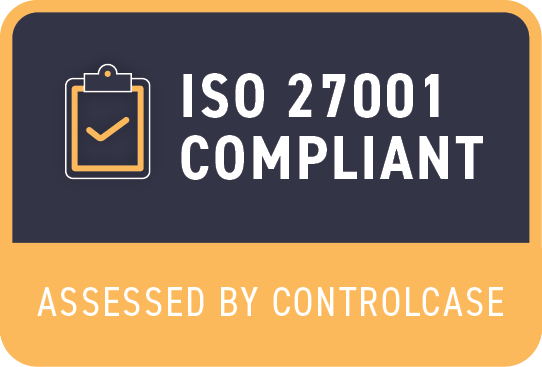When your organization is investing hundreds of millions in a capital expenditure (CapEx) project, every word in the construction agreement carries weight, and those words matter more than most realize.
Yet many teams rush to execution before fully understanding what those words mean and how they will shape cost, control, and accountability once construction begins.
A short pre-construction agreement review by an experienced auditor can prevent costly disputes, protect budgets, and strengthen your CapEx oversight before the first shovel hits the ground.
Why Timing Matters
Once construction begins, your leverage to change key contract terms decreases, but the financial exposure remains. A pre-construction contract review lets you strengthen terms before costs start to accrue, protecting your company and your budget.
By reviewing agreements early, you:
- Avoid unnecessary costs by catching unclear fee and markup terms.
- Strengthen governance with measurable, enforceable contract language.
- Set expectations for documentation and cost transparency.
- Prevent disputes before they become expensive change orders.
A few hours of review upfront can save months of frustration and millions in avoidable costs once work begins.
Legal vs. Audit Review: Two Perspectives, One Goal
Most organizations rely on legal counsel to review their construction agreements for enforceability, and that is an essential step. However, legal and audit reviews serve distinct purposes, and both are necessary to protect your CapEx investment.
- Attorneys ensure the contract is enforceable and that risk is properly allocated between parties.
- Auditors and contract specialists ensure the contract is financially sound, confirming that cost structures, fee terms, and reimbursement clauses can be monitored and verified once the project begins.
Legal review ensures your contract can be defended in court. Contract reviews by a specialized auditor ensure it can withstand financial scrutiny.
By involving an auditor early in the draft contracting phase, you set clear expectations around cost transparency, documentation, and accountability. That foundation strengthens every stage of your project’s lifecycle and positions your organization to manage its CapEx costs with precision.
“An unclear contract doesn’t just invite confusion, it invites cost”
Exploring the Impact: How Ambiguity Creates Risk
In large construction projects, even simple wording choices can have million-dollar consequences. The examples below represent just a few of the many pitfalls auditors identify during pre-construction contract reviews, underscoring why it is critical to have an expert involved early.
Markup vs. Margin: A $5 Million Misunderstanding
Markup and margin sound interchangeable, but mathematically they are different.
- A 10% markup on $1,000 is $1,100.
- A 10% margin is $1,111.
That $11 difference per thousand translates to $5 million on a $500 million project. Unless your contract defines these terms precisely, you are leaving room for interpretation and potential overpayment.
Audit Rights Without Access
Contracts often include audit rights, but few ensure true auditability.
Phrases like “owner may audit relevant records” sound protective but can be problematic. Who decides what is relevant? If the contractor limits access to source documents such as subcontractor bids or payroll records, your right to audit becomes nearly meaningless.
An experienced auditor ensures your audit clause includes:
- Full access to all cost-supporting records, not just summaries.
- A right to audit subcontractors.
- A reasonable record-retention period, typically at least three to five years post-completion.
Clear language ensures you can verify costs later, not just hope for compliance.
The “Not to Exceed” Trap
“Not to exceed” sounds firm, but is it? Without definition, contractors might interpret it as a flexible ceiling rather than a hard cap.
An auditor clarifies:
- What costs are included in the cap.
- Whether the cap applies to approved change orders.
- How exceptions must be documented.
That clarity can be the difference between budget certainty and surprise overages.
Cost-Reimbursable vs. Rate Card Confusion
It is common for CapEx contracts to combine reimbursable costs and fixed rate cards. When both exist, ambiguity can arise.
Is the contractor billing actual costs plus a fee, or at pre-agreed rates regardless of actual expense? Are burdens like fringe, SUTA, or FUTA included in those rates, or charged separately?
Auditors ensure fee and expense structures are defined, documented, and tested for reasonableness before signing. Otherwise, even a small miscalculation in a tax or overhead assumption can inflate costs by hundreds of thousands of dollars.
What These Mistakes Cost (and How Early Review Prevents Them)
Each of these pitfalls has one thing in common: they are easiest to fix before the contract is signed.
In one case, a Fortune 100 manufacturer asked SC&H to review its construction agreement prior to execution. The draft allowed administrative costs to be billed as reimbursable, a subtle oversight that could have inflated total costs by millions.
After tightening the language, the company avoided an estimated $2 million in unnecessary charges.
In another instance, a global energy firm engaged SC&H mid-project after discovering discrepancies in labor burden rates. While the team recovered those overpayments, the issue stemmed from unclear rate definitions that an early review could have prevented entirely.
The takeaway? The cheapest time to fix a problem is before it becomes one, especially in large CapEx projects.
Quantifying the Value
Even modest improvements in contract clarity can drive measurable savings. Auditors and advisors typically identify cost avoidance of 2–4% of total project spend through early review and oversight.
On a $500 million capital project, that equates to $10–20 million in value retained, not through disputes or clawbacks but through clear terms and proactive alignment.
In an environment where construction costs continue to rise, protecting even a fraction of your CapEx budget delivers immediate, quantifiable ROI. More importantly, it fosters trust between owners and contractors by setting clear expectations from day one.
The Takeaway
A single line of contract language can shift millions in cost to the owner or protect them.
When CapEx contracts lack clarity, financial exposure follows, often hidden in vague definitions, terms, and clauses that seemed harmless at signing.
By conducting a pre-construction contract review, you can identify and reduce those risks before they impact your CapEx investment, ensuring every dollar is protected before the first shovel hits the ground.
Because once construction begins, unclear language does not just create confusion, it creates cost.
Act Before You Build
Before the first invoice, make sure your construction agreement supports your financial goals. Connect with SC&H’s Contract Compliance Audit Services team to learn how we help Fortune 500 and enterprise organizations protect their capital investments from day one.





